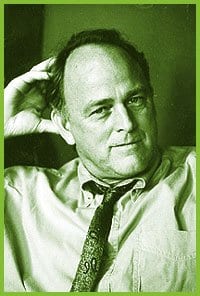It was a chilly Nov, 1993 day when Glenn and Jeff met at a Frontrunners group in San Francisco, four months after Glenn’s 10-year relationship had ended. They hit it off, discovering their common interests, including travel. They decided their future together would be living abroad.
“Life in San Francisco was pretty enjoyable but we were bored with our jobs,” Glenn says. “We had an interest in post-Soviet countries but weren’t sure how to go about finding work there. We talked to knowledgeable people in the city about it. One day reading a trade paper, I saw an ad for a position in Kazakhstan, applied and got the job.”
Glenn and Jeff decided that if they were to live abroad, they would only do it as a gay couple. When Glenn approached the firm about his same-sex partner, he was told that, as Kazakhstan was a Muslim country, it was unacceptable. Clearly, for him, it was a case of homophobia as his repeated requests were met with obstacle after obstacle. Frustrated, Jeff took matters into his own hands obtaining a visa separately.
“Being in Kazakhstan was different because it was the first time most of our friends were not gay,” Jeff adds. “It was an interesting place, like the wild west. Eventually we met a Peace Corps volunteer who introduced us to a gay man. Among Soviet men, this guy really stood out.”
One contact led to another; their circle gradually widened. Particularly memorable was a man who had been on an exchange to the United States and had gone through a coming out experience. On his return, hungry to meet others, he would approach people with “Hi, I’m gay.” He eventually became the queen bee of the local gay scene.
Glenn’s work assignment lasted only 10 months. He took a job in Kiev, in the Ukraine. Kazakhstan, he said, had broken them in, provided an understanding of the intricacies of post-Soviet society.
“Kiev,” reminisces Glenn, “was much more cosmopolitan, more vibrant, like Paris with an abundance of food, of cafes. Now we could read the signals of post-Soviet gay men. In addition, there was a large ex-pat community. For those that were gay and looking, there were plenty of young Ukrainian men wanting boyfriends.”
There was no trouble making acquaintances. Jeff, Glenn adds, is the more social of the two of them and meets people quickly. Among these was a grande dame of the local scene who was more than willing to introduce them around.
“There were roughly two camps,” Glenn indicates. “The over-30s, with Soviet complexes about sexuality, had compartmentalized their lives. Most were in the arts, had been forced to marry and had been coerced into reporting to the secret police. They would have sex with men but interestingly, given their past, felt no guilt about it. We met one long-time gay couple who lived together under the ruse of an apartment shortage and being forced to share accommodation.
“Younger men, who had never endured police scrutiny, were progressive, keen to meet foreigners, on the lookout for sugar daddies. Some were pansexual. They married to have children who would care for them when they got older. These men were devoted to their wives, yet having sex with men. We met a couple in which the wife would participate with the two men.”
Jeff and Glenn arrived in Kiev when the gay scene was nascent, about to bubble up from dingy cafes where men met discreetly once a week to open gay places. It was, they suggested, like the ’60s in North America.
“In Eastern Europe sexuality is not a defined concept as in the West where you have sex only with the one you love,” Glenn notes. “We were there long enough to watch young men grow into solid young professionals, became our peers and develop confidence. They went through dating and breakups. A gay paper was started and internet dating sites began to appear.
“But by the late ’90s, things began to change. AIDS took hold. The worst of the gay culture had been imported – the obsession with fashion, with attitude, with developing the perfect gym body. Cliques formed; there was conflict between boys with western boyfriends and those without. It became a stigma to have one.”
The scene had become like elsewhere, a mixture of good and bad. But Jeff and Glenn feel privileged to have been there – discovering the stories of men as they explored their sexuality.
Today they are living in Afghanistan where they are learning about the nuances there. But nothing, they say, compares to the thrill of Kiev.

 Why you can trust Xtra
Why you can trust Xtra


